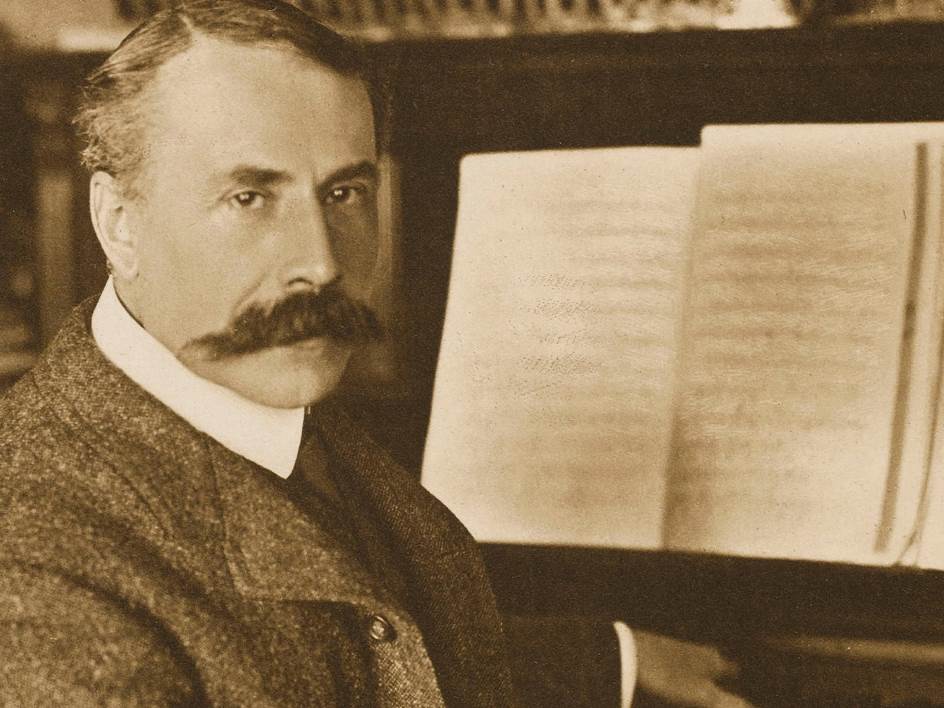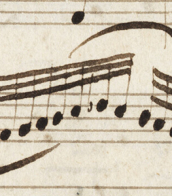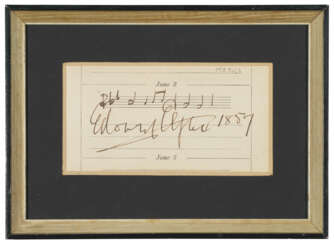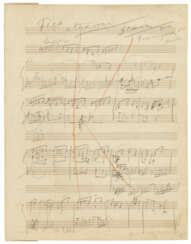Edward Elgar (1857 - 1934) — Auction price

Edward William Elgar (Sir Edward William Elgar, 1st Baronet) was a British composer of the Romantic period.
The son of an organist, Elgar was a fine violinist, played the bassoon, and worked as a Kapellmeister and church organist. Then in Malvern, Worcestershire, he began composing music himself. He composed several major choral works, notably the oratorio The Light of Life (Lux Christi (1896,), and in 1898-99 he wrote the popular Enigma Variations for orchestra. Another major work followed in 1900, the oratorio The Dream of Gerontius, which is considered his masterpiece.
From 1905 to 1908 Elgar was the first Professor of Music at the University of Birmingham. During World War I, he periodically wrote patriotic works. His marches, introductions, symphonies, and concertos for strings are well known. Elgar's vibrant works contributed to the revival of English music in the 20th century during the transition from late Romanticism.


Edward William Elgar (Sir Edward William Elgar, 1st Baronet) was a British composer of the Romantic period.
The son of an organist, Elgar was a fine violinist, played the bassoon, and worked as a Kapellmeister and church organist. Then in Malvern, Worcestershire, he began composing music himself. He composed several major choral works, notably the oratorio The Light of Life (Lux Christi (1896,), and in 1898-99 he wrote the popular Enigma Variations for orchestra. Another major work followed in 1900, the oratorio The Dream of Gerontius, which is considered his masterpiece.
From 1905 to 1908 Elgar was the first Professor of Music at the University of Birmingham. During World War I, he periodically wrote patriotic works. His marches, introductions, symphonies, and concertos for strings are well known. Elgar's vibrant works contributed to the revival of English music in the 20th century during the transition from late Romanticism.


Edward William Elgar (Sir Edward William Elgar, 1st Baronet) was a British composer of the Romantic period.
The son of an organist, Elgar was a fine violinist, played the bassoon, and worked as a Kapellmeister and church organist. Then in Malvern, Worcestershire, he began composing music himself. He composed several major choral works, notably the oratorio The Light of Life (Lux Christi (1896,), and in 1898-99 he wrote the popular Enigma Variations for orchestra. Another major work followed in 1900, the oratorio The Dream of Gerontius, which is considered his masterpiece.
From 1905 to 1908 Elgar was the first Professor of Music at the University of Birmingham. During World War I, he periodically wrote patriotic works. His marches, introductions, symphonies, and concertos for strings are well known. Elgar's vibrant works contributed to the revival of English music in the 20th century during the transition from late Romanticism.






